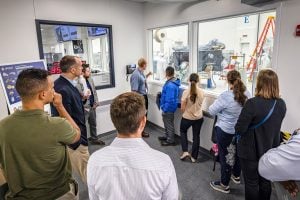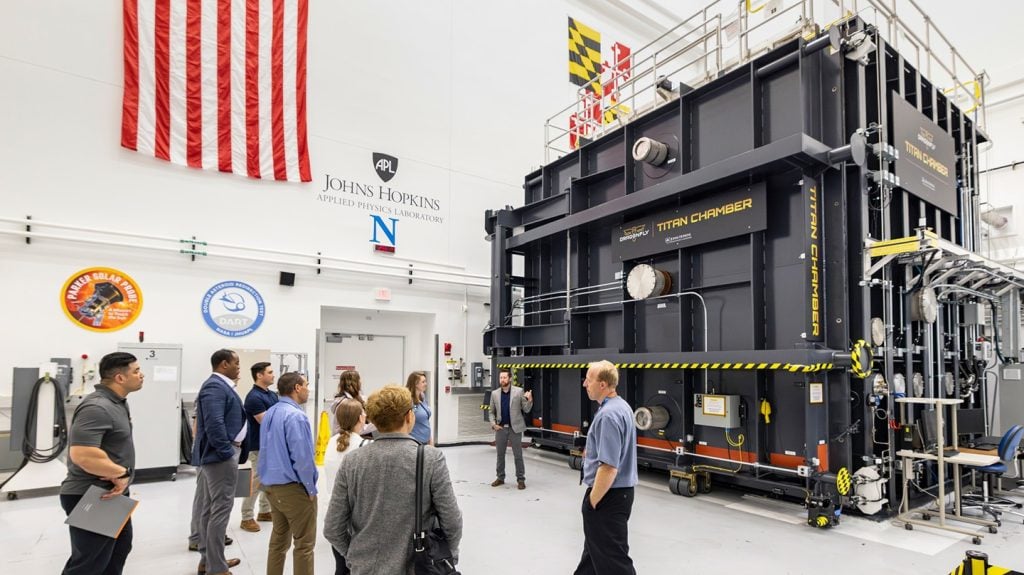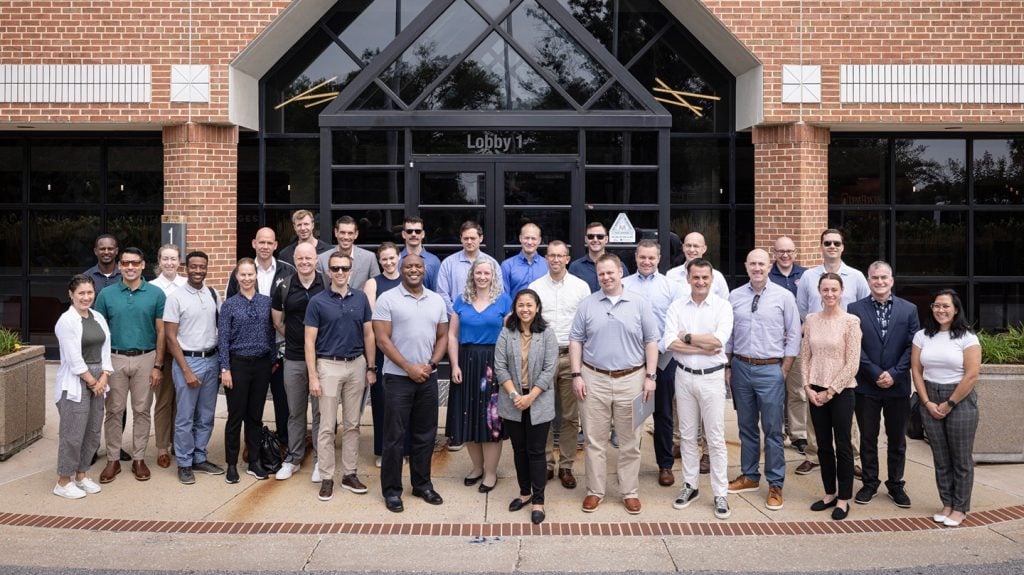
The Johns Hopkins Applied Physics Laboratory (APL) and Whiting School of Engineering welcomed 70 students from the U.S. Space Force’s Schriever and West Space Scholars Program on Aug. 9 and 16 for a tour of APL’s campus and a chance to find potential paths for collaboration as the students work on world-class space-related research and development projects.
The candidates — a mix of military officers and government civilians from the United States and abroad — represent the program’s second cohort since its inception in 2022, when the Space Force partnered with the Johns Hopkins School of Advanced International Studies (SAIS) to create a professional development pathway for military leadership. Those chosen for this highly selective professional military education program can earn a Master of International Public Policy degree while studying at the SAIS campus in Washington, D.C.

During their tour of APL’s campus, students in the U.S. Space Force’s professional military education program got to see the Titan Chamber, an environmental simulator of Saturn’s moon Titan that NASA’s Dragonfly rotorcraft will be exploring. (Credit: Johns Hopkins APL/Ed Whitman)
“We’re thrilled to welcome this new cohort to the Johns Hopkins family and proud to continue serving the Space Force by facilitating the education and growth of its leaders,” said Patrick Binning, APL’s mission area executive for National Security Space. “APL has a long history of pushing the boundaries of scientific discovery and innovation to provide critical contributions to the nation’s critical challenges. By opening our doors to these talented individuals, we hope to provide them the tools and experts they need to make a meaningful impact on the Space Force and the nation as well.”
APL and the Whiting School have collaborated with SAIS to offer program candidates access to subject-matter experts and state-of-the-art, classified facilities as they work on their research projects. Students are also given the option to select space-based STEM (science, technology, engineering and math) elective courses through the Whiting School so they can mold their coursework to their career objectives and learning goals.
Last year with the program’s inaugural class, the Lab was able to leverage its experts to help a student with his research thesis by connecting him with an APL project in support of a military sponsor.
This year’s cohort was treated to tours that showcased APL’s expertise in both national security space and civil space. They included a presentation on the Lab’s space warfighting analysis center (SWAC); the Deep Space Advanced Radar Concept (DARC) that APL delivered to the Space Force in 2022; a visit to the mission operations center where the Lab led NASA’s Double Asteroid Redirection Test (DART) mission to successfully demonstrate the world’s first planetary defense test mission; and a look at the Interstellar Mapping and Acceleration Probe (IMAP) spacecraft currently housed in one of the Lab’s clean rooms.

During their tour of APL’s campus, students in the U.S. Space Force’s professional military education program got to see the Titan Chamber, an environmental simulator of Saturn’s moon Titan that NASA’s Dragonfly rotorcraft will be exploring. (Credit: Johns Hopkins APL/Ed Whitman)
“It’s such a privilege to have these top-notch individuals visit,” said Nick Rotunda, APL project manager of national security space training and education. “We’re eager to see how we can share our expertise and provide them a platform to collaborate with our researchers and engineers and successfully launch them to the next stage of their careers.”